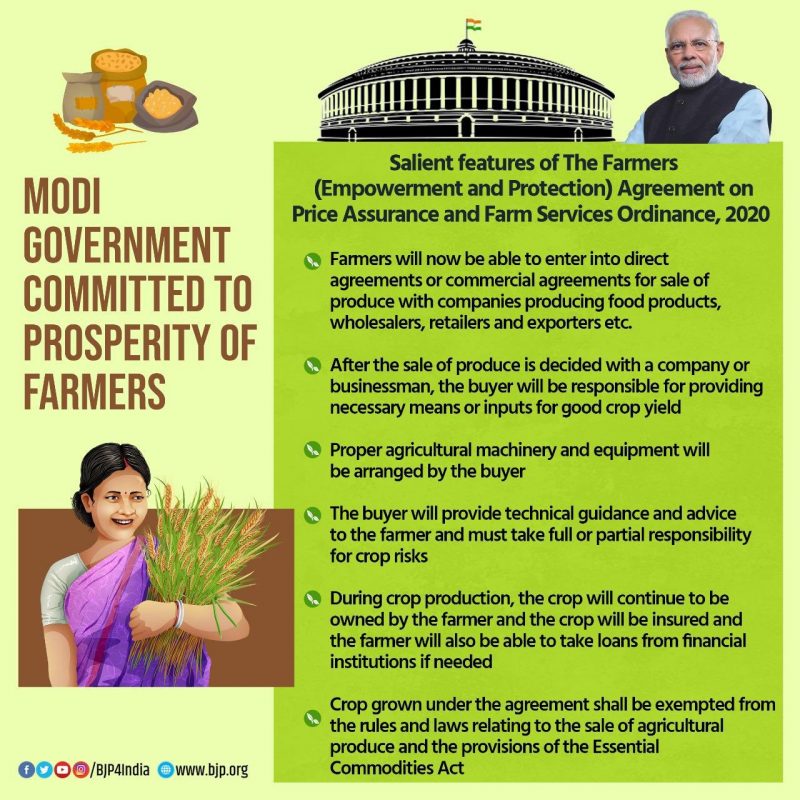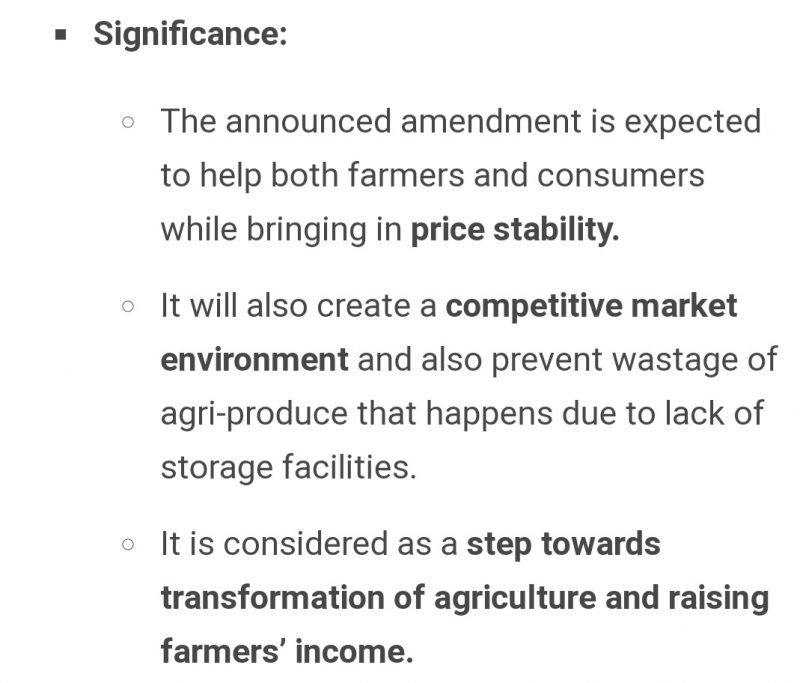Farmers, especially in Punjab and Haryana, are holding strikes against two Agriculture Bills introduced by the BJP led government in the ongoing winter session of the parliament. The bills touted to be a game-changer for the farmers in India by the Centre have been able to convince farmers less.
In protest against the same, Akali Dal’s lone Union minister Harsimrat Kaur Badal resigned from Prime Minister Narendra Modi’s cabinet.
To better understand the same, here is everything you need to know about the Agriculture Bills.
In the ongoing monsoon session, after a walkout by the opposition, the Modi-government passed Farmers’ Produce Trade and Commerce (Promotion And Facilitation) Bill, 2020, and the Farmers (Empowerment and Protection) Agreement on Price Assurance and Farm Services Bill, 2020 in the Lok Sabha.
What the Bills entail?
The Farmers’ Produce Trade and Commerce (Promotion And Facilitation) Bill, 2020 allows farmers a system to sell their products aside from the designated mandis with no threat to the existing structure.

The second, Farmers (Empowerment and Protection) Agreement on Price Assurance and Farm Services Bill allows any farmers to go into contractual agreements with buyers’ entities.
What the protest is about?
While the bills sound good, the farmers fear that the Centre will end the current system of open-ended Food Corporation of India (FCI) procurement. In simple terms, the government is responsible for buying crop produce from farmers from across the country and then sell it via ration shops. This allows farmers a Minimum Support Price (MSP) and assures them that their farm produce will be bought.

The farmers, as of now, are scared that MSP will end. However, the government has repeatedly assured that MSP will continue no matter what.
Moving the two bills for passage in the House, Agriculture Minister Narendra Tomar said that the two bills aim to make farmers prosperous and legislations will not impact the provisions of minimum support price (MSP).

“These two bills make farming profitable and prosperous and will also give freedom to farmers. Farmers will have the right to sell their produce to anyone. There will be no tax of state government or central government on trade outside mandis. Now only 50-60 people do trade in mandis and competition exists among themselves,” the minister said.
BJP’s long-term-ally Akali Dal, and the Congress oppose farm bills.
While Congress has a habit of opposing anything and everything, but the government must clear the doubts of Akali Dal. Also, in the future, if the government sticks to its promise of not letting MSP go, then the bill will be fruitful for the farmers as capitalists companies dealing in food products are always in lookout for buying directly from the farmers, which can fetch the latter a desirable amount.
Read: #Nationalunemploymentday Trends As PM Modi Celebrates His 70th Birthday Today
Moreover, when these companies will buy directly from farmers, they will try to ensure that there is minimum crop damage or crop failure because if that happens, the company will have to pay the farmer in full or partial. For the same, these companies could help farmers with new technology so that the land yields its best.
However, the government will also have to make sure they don’t fall short of crop produce for ration shops when they allow farmers to sell directly to the buyers.
Some states claim that collecting crops produce from farmers is their right and Centre is barring the states from it by allowing farmers to sell directly.




